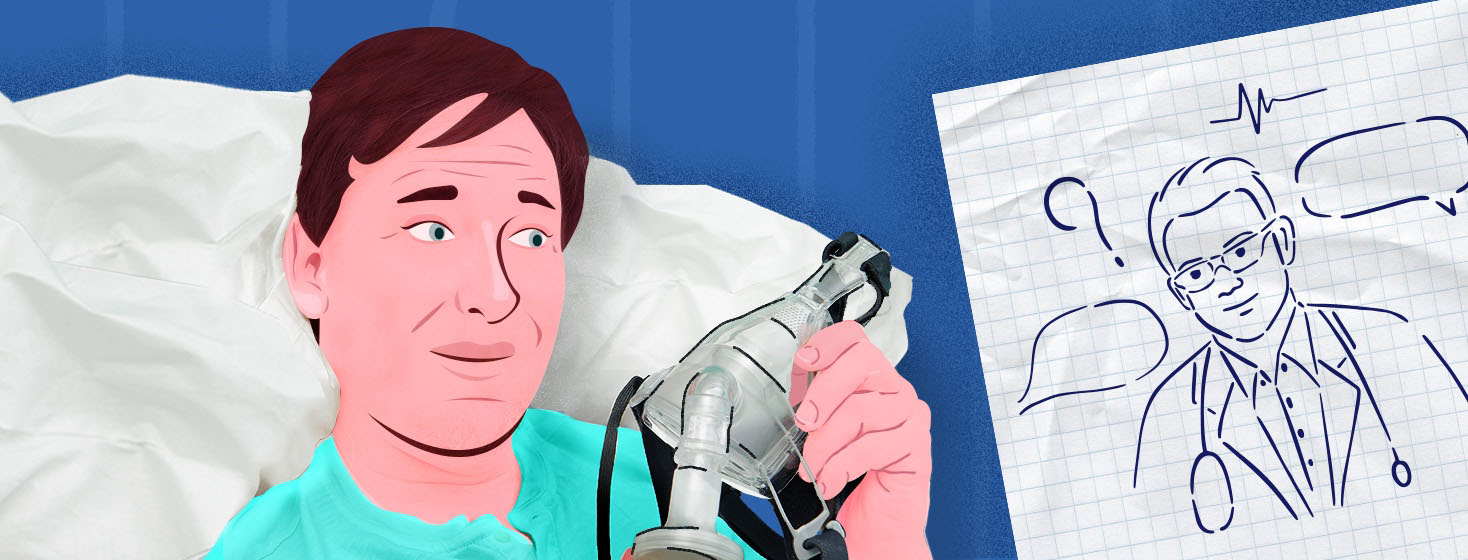How I Adjusted to CPAP
For years, as a respiratory therapist, I have worked with patients who use CPAP at night for obstructive sleep apnea (OSA), COPD, or both. I would often ask them, "How long did it take you to get used to CPAP? How do you like it?" Their responses were often surprisingly positive:
- "Oh, I love my CPAP. I couldn't imagine sleeping without it."
- "I was so tired every day. Then my doctor ordered a sleep study and determined I would benefit from CPAP. I got used to it right away, and it makes me feel so much better during the day!"
- "I love my CPAP! I was so tired before using it, and now I feel so good. Even if my doctor told me I didn’t need it anymore, I might keep using it."
Give CPAP a chance
Of course, there were those (including my own mother) whose doctors recommended CPAP, but they adamantly refused—or just never got used to sleeping with it. And that’s fine, too. Sometimes, it’s difficult to make such changes. Still, as a respiratory therapist, I know CPAP can help. Especially if you have COPD, using CPAP can help you live better and longer. So, I tend to try to talk my own patients into it.
This or That
Do you have sleep apnea in addition to your COPD?
The tables were turned
Despite my knowing how well they work and how much they benefit my patients, I often found myself saying, “I hope I never have to wear one of those.”
Fast forward many years, and I found myself constantly tired during the day and waking up frequently at night. In my mid-40s, my dentist mentioned that he suspected I had obstructive sleep apnea (OSA). My OSA would cause me to stop breathing multiple times during sleep, waking me up, often without realizing it, only to fall back asleep and repeat the cycle. This constant disruption lead to persistent daytime fatigue.
But I was in denial that this is what was really happening to me. Besides, whenever I brought up the topic to my doctors, they all said the same thing: "You don’t look like someone who would develop OSA." So, I brushed it off until about ten years later when I realized I was exhausted every single day.
Finally trying CPAP myself
By the age of 54, the signs were undeniable. I finally mentioned my fatigue to my primary care doctor, wondering if sleep apnea could be the cause. At that point, I was so exhausted that I actually hoped I had sleep apnea because if I did, there might be a solution.
I agreed to a sleep study, and sure enough, the results confirmed I had sleep apnea. My doctor prescribed CPAP, and I was eager to see if it would help. To my surprise, I actually really liked it. My sleep tech recommended a particular mask, and it worked great for me. The pressure was gentle, and I adapted quickly.
I get it now
Now, I understand firsthand why so many of my patients love their CPAP. I am sleeping better than I have in years. The machine itself is amazingly quiet, much better than the older models I used to see patients using. It doesn’t wake me up, and it’s comfortable enough that I don’t even think about it anymore, I just put it on and sleep soundly.
Now, I am one of those people who says "I really like CPAP. In fact, I like it so much! The mask fits comfortably, the pressure is gentle, and I have no issues falling asleep with it."
My advice when you're starting out
If your doctor recommends CPAP, I strongly encourage you to give it a try—and be patient with the process. At first, CPAP felt strange to me. It seemed like the machine was fighting against my breathing, and I wasn’t sure if I’d be able to sleep with it. But I made a firm decision: I wasn’t going to take the mask off, and I was going to find a way to make it work. After a few minutes, I realized that if I breathed slowly and gently, the machine adjusted and synced with my breathing. That first night, I wore it for 11 hours, and the next day, I felt amazing. It was such a great feeling to wake up truly rested.
One of the biggest challenges for some people is getting used to the mask. Fortunately, my sleep tech recommended a great one for me right away, so I didn’t struggle with that. But I know many people who needed to try a few different masks before finding the right fit. The good news is that there are plenty of options available, and with a little trial and error, most people can find one that works for them.
If you’re struggling with fatigue and suspect sleep apnea, a sleep study might be worth considering. CPAP could be life-changing, just as it has been for me and so many others.

Join the conversation